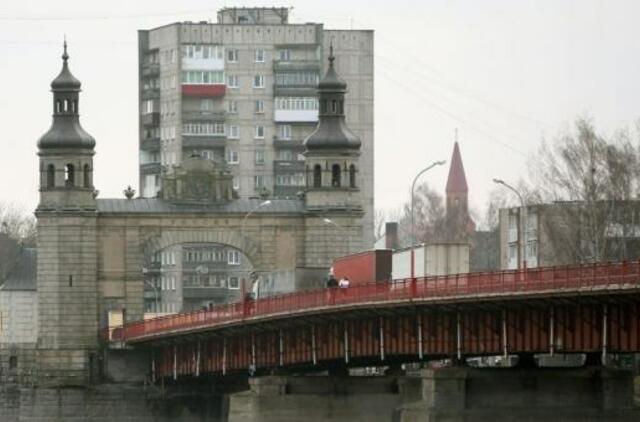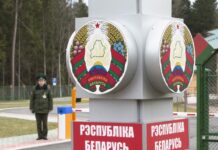
In an interview with LRt.lt, the president of the Kaliningrad Lithuanian Community Sigitas Šamborskis said “If I hadn’t left Kaliningrad, I wouldn’t be speaking to you today, I would be in jail somewhere”. According to him, the majority of Lithuanians want to leave Kaliningrad and are looking for ways to do it. The Lithuanian Consulate there is also receiving many inquiries about re-establishing Lithuanian citizenship since Russia’s invasion of Ukraine.

Quite a long time ago, Sigitas Šamborskis came to Kaliningrad to study. He was there when Lithuania regained its independence, and was one of the founders of the Lithuanian Community, led the Sąjūdis (Freedom Movement) group in Sovetsk and helped establish a Lithuanian cultural association. However, for Lithuanians it became harder and harder to live there, due to various repressions.
A few years ago he decided to return to Lithuania, after being arrested several times. There was no basis for his arrests, other than being active in the Lithuanian community. He said people are arrested not knowing what will happen to them – court case or poisoning? The authorities “do whatever they want,” said Šamborskis.
Although he lives in Lithuania now, he still keeps in touch with Lithuanians in Kaliningrad, though it has become more difficult due to the pandemic. The situation also became worse after Russia attacked Ukraine. He explained that few Lithuanians in Kaliningrad have dual citizenship or work visas. Those who do not, are behind an iron curtain. They cannot leave by any means. According to community data, about 14,000 in Kaliningrad speak Lithuanian, but there are many more who are of Lithuanian heritage. There are quite a few young men who were forced to fight in the war against Ukraine, and some casualties, as reported by Šamborskis’ contacts there. And apparently they are written off by Lithuania as Russian citizens. Most who have Lithuanian or dual citizenship have returned to Lithuania or emigrated to the UK, Ireland, Norway and other countries, and more are doing so especially since the war on Ukraine.
 Even earlier, Lithuanians in Kaliningrad were seen as the enemy, and it is worse now. Children attending choirs and language classes are harrassed by peers and neighbours. Workplace harrassment has also increased. Since Putin’s second term in office, thirteen Lithuanian organizations were forced to close. Activists are followed and interrogated, people are kept in an informational vacuum regarding the war on Ukraine, with media outlets blocked as they are in Russia.
Even earlier, Lithuanians in Kaliningrad were seen as the enemy, and it is worse now. Children attending choirs and language classes are harrassed by peers and neighbours. Workplace harrassment has also increased. Since Putin’s second term in office, thirteen Lithuanian organizations were forced to close. Activists are followed and interrogated, people are kept in an informational vacuum regarding the war on Ukraine, with media outlets blocked as they are in Russia.
Various TV and radio broadcasts repeat the propaganda that Ukrainians are fascists and child-killers, and Poles and Lithuanians are Russia’s greatest enemies, establishing NATO bases to attack Russia – and some of the population is inevitably convinced of this, said Šamborskis.
The Lithuanian Ministry of Foreign Affairs confirmed that the number of requests to emigrate to Lithuania from persons of Lithuanian and non-Lithuanian descent has increased considerably, with some fearing for their safety and actually seeking asylum.





























